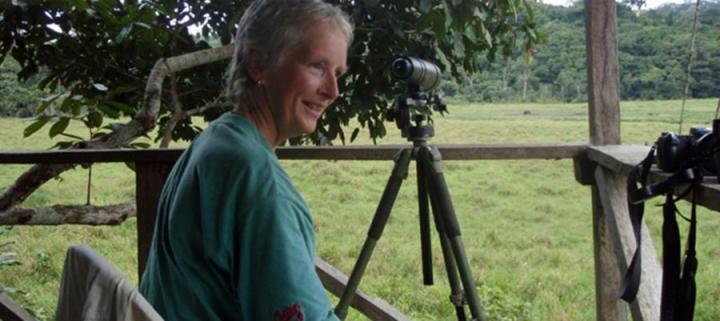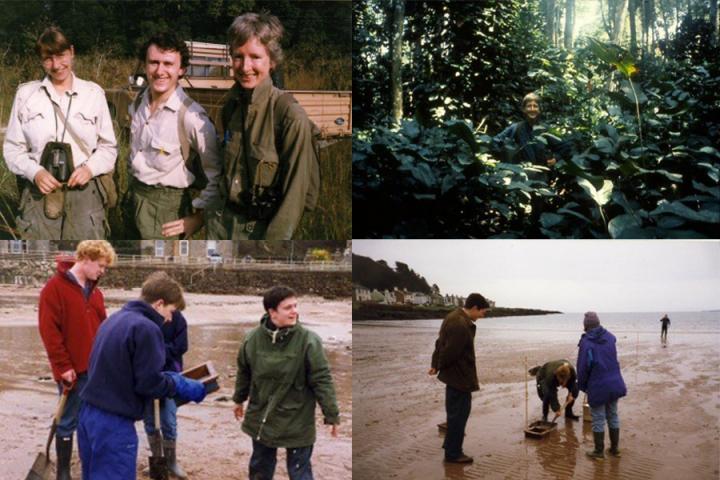An expert in the field
This month we focus on a retired member of staff, Dr Liz Rogers, who taught biology and zoology from 1969 until 2004.

Liz started her career in biological sciences with an undergraduate zoology degree from the University of Oxford. She followed an early interest in cell biology and went on to a PhD at Yale before taking up a postdoctoral fellowship at the Institute of Comparative Anatomy in Palermo, Italy.
It was whilst walking through the damaged city after the 1968 earthquake that her next career move was hatched. Having had family connections in Scotland and visited on many occasions, a work colleague suggested that she go and work with Ulrich Loening in the Botany Department at Edinburgh. Liz jumped at the chance.
Ulrich was at the time working on really cutting-edge techniques for the analysis of RNA. I took my fellowship to his lab and was lucky enough to collaborate briefly with Ed Southern before he created the Southern Blot, a technique for the analysis of DNA samples, developed at Edinburgh and still in use throughout the globe .

Career change
At the end of her post-doc, Liz followed her original love to take up a demonstrator post in the Zoology Department, working her way up to lecturer and then senior lecturer posts. She eventually took the unorthodox step of shifting her research completely into field zoology.
In 1981, Liz joined a project in Gabon, which was set up by an ex-Edinburgh student, Caroline Tutin. The project was looking into the ecology of the Western Lowland Gorilla – essentially researching the behaviour associated with what the gorillas ate and where they got it, as well as their social behaviour. This was the start of Liz’s 17 year connection with Gabon, involving staff and students from Stirling and Edinburgh universities.
Dissertations which Liz helped supervise ranged from subjects such as seed dispersal by gorillas to the effects of logging upon forest elephants and great apes. One of her former students went on to be Director of the Karisoke Research Centre in Rwanda, founded by Dian Fossey and famous for its work with mountain gorillas. Another is Head of National Parks in Gabon.
Liz spent extended periods in Gabon most years,, living and working in the gorilla habitats.
A comfortable field camp had been established in 1983, by Anglo-French colleagues using local materials, near the edge of the forest. You could hear gorillas from camp but were away from much of the insect life that plagued us once under the trees.
Cumbrae calling
Liz was also heavily involved in the annual zoology field trip to Millport on the Isle of Cumbrae, still an integral part of the undergraduate experience to this day. It teaches valuable skills for designing and performing surveys, and collecting and analysing data; core skills for any aspiring scientist.
It’s such an important part of the programme for undergraduates to gain experience in the practical aspects of zoology and ecology – and it’s a lot of fun at the same time. Millport is an ideal site for carrying out all sorts of surveys, and ensuring that every student is potentially able to attend is key to the success of the trip. I have been supporting the Edinburgh Fund for about 18 years mostly for the way it helps ensure all students have the opportunity to partake in these types of crucial learning experiences, regardless of their financial situations.
Keeping busy
Since retirement, Liz tries to get back to Edinburgh at least once a year to keep up with former students and colleagues.
In Devon, I keep busy out and about in the field with local wildlife biologists and give occasional talks in local villages near where I live. I’m still passionate about wildlife and science, and I really enjoy getting to pass on that knowledge to others.

